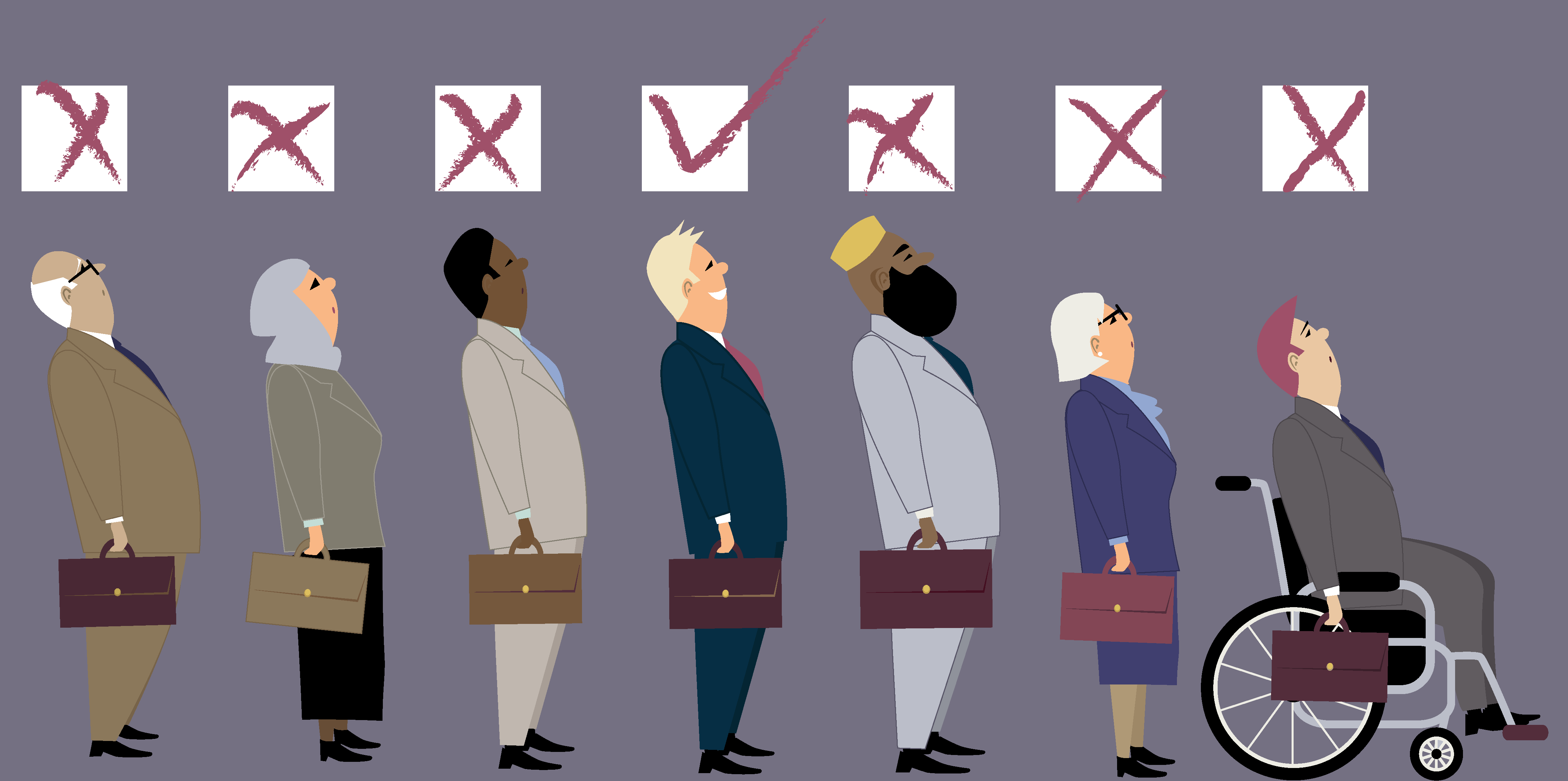When a worker is terminated, demoted, or denied a promotion, it is often frustrating and can be quite unexpected. In other situations, there may be obvious and inappropriate reasons for the negative employment action. In Alabama, employment is considered at-will, meaning an employer can take adverse employment actions for just about any reason, so long as the reason does not violate federal law.
If your employer has an unlawful reason for taking actions against you, then you need to call an Alabama employment discrimination lawyer today to protect your rights.
Types of Discrimination
The Equal Employment Opportunity Commission (EEOC) hears disputes involving various types of discrimination. If you believe that your employer took a negative action against you due to any of the following reasons, you may have a potential discrimination case against the employer.
- Age: It is unlawful to discriminate based on age in most circumstances. The Age Discrimination Act protects workers over 40 years of age. Of course, there are exceptions, such as law enforcement, public safety, and military positions that may have upper age limits. If in doubt, speak to a lawyer right away.
- Gender: It is illegal to make employment decisions based on gender or gender identity. All workers have a right to be judged on the character and quality of their work and abilities, not their gender.
- Ethnicity/Race/Color/Nation of Origin: Ethnicity, race, color, and national origin are all different but often overlapping social dynamics. Ethnicity is, to put it simply, a shared social background that often includes a similar language, religion, or ancestry. Ethnicity may not always be obvious on the surface. Race is a social characteristic that is identifiable among a particular group, most notably due to physical features and characteristics. Color is simply skin color. Nation of origin is simply the country from which someone originates. These are often subtle but key distinctions. Nevertheless, all are improper reasons for making hiring, firing, or promotion decisions in the workplace.
- Genetic information: Genetic discrimination occurs when an employer or even a health insurance company attempts to discriminate based on unique genetic information. This was made unlawful by the Genetic Information Nondiscrimination Act of 2008 (or GINA).
- Disabilities (mental or physical): Some disabilities are obvious, like amputations, while others are invisible, like depression, ADHD, or post-traumatic stress disorder (PTSD). Regardless of the disability, this should not be a ground for discrimination in the workplace.
- Veteran status: There are some who actually view military service negatively or who fear that veterans are somehow less able to perform jobs. This is also unlawful discrimination.
- Members of the Armed Forces Reserve: Reserve members cannot be treated in a discriminatory manner for attending scheduled drill or otherwise having to miss work to perform military service, including training or deployment.
- Pregnancy / Parenthood: Being a parent, having a child, and adopting are personal decisions that should not be considered in an employment context.
- Relationship to a person who has been the victim of discrimination: Employers should not make employment decisions based on the fact that a person’s relative is involved in a claim of discrimination.
- Reporting or acting as a witness in a discrimination case: Your employer should not discriminate or take adverse actions against you for speaking up and reporting discrimination or acting as a witness in a claim of discrimination against the employer.
Get Help With Your Discrimination Case
If you suspect that you have been the victim of discrimination, or you know someone who has, it is important to contact a lawyer right away. Time is limited to take actions to protect your rights. At Fonteneau Arnold, LLC, we pride ourselves in aggressively fighting for our clients and counseling them through challenging and complex situations involving wage disputes, sexual harassment, discrimination, and other labor disputes with employers. Contact us today to schedule a consultation and get answers.


